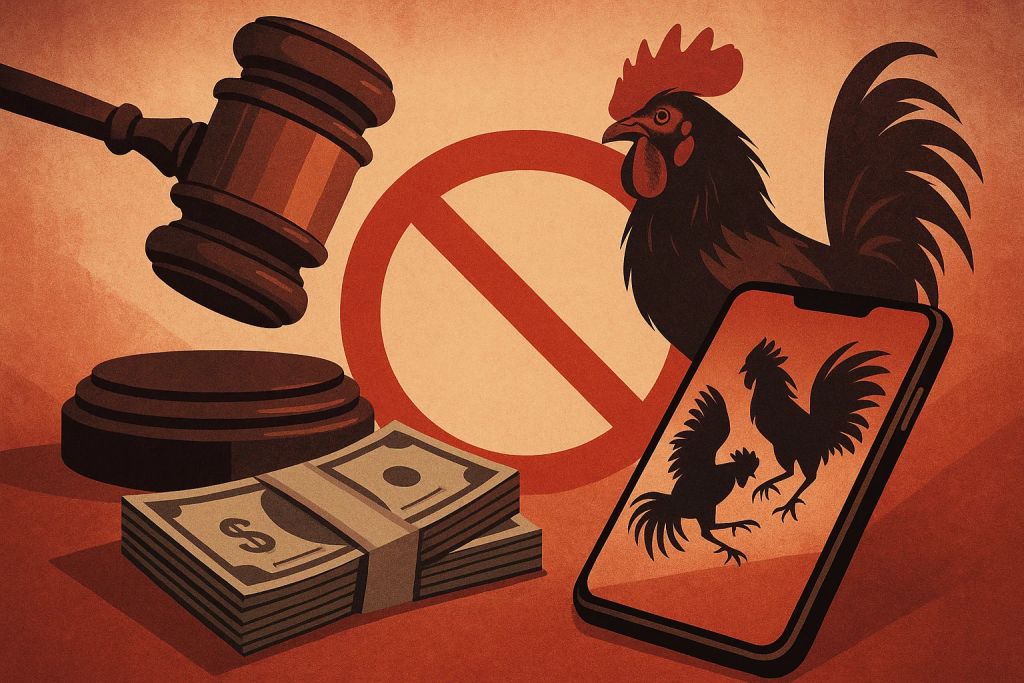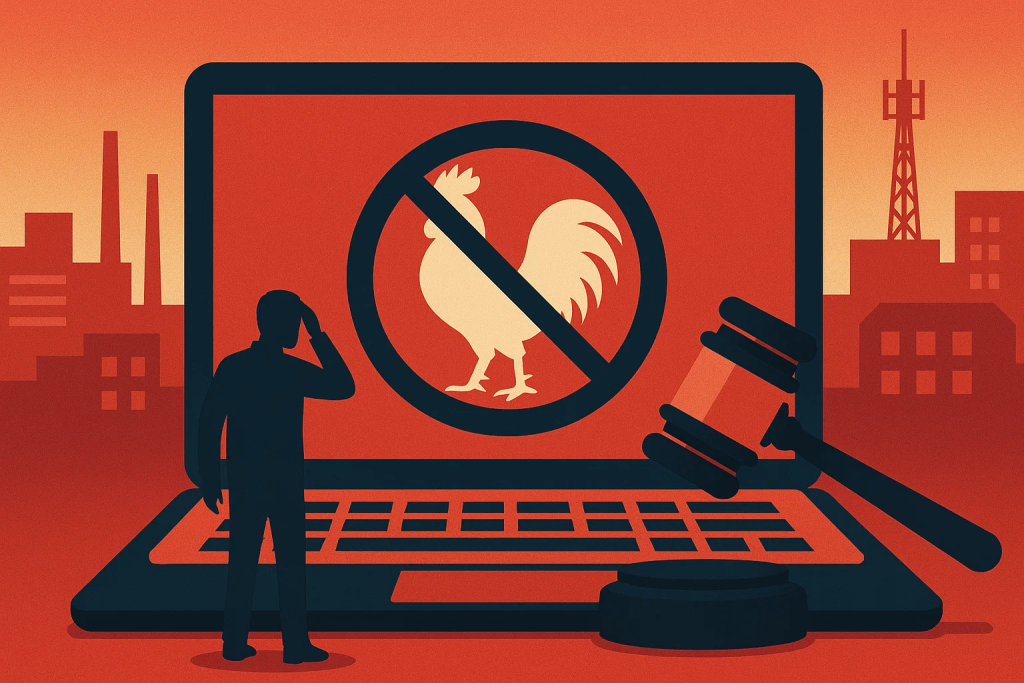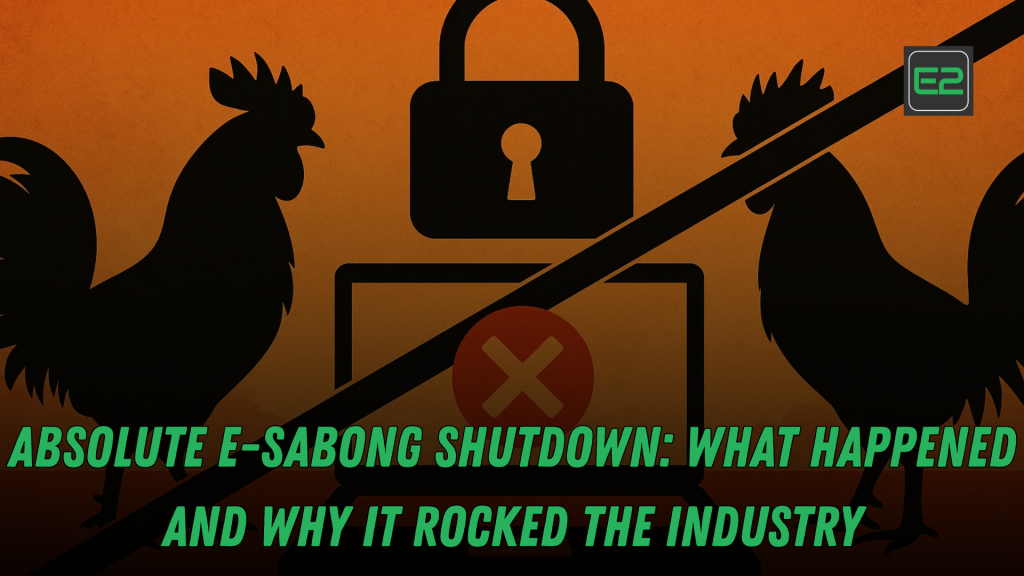E-sabong, or online cockfighting, became a rapidly growing industry in the Philippines in recent years, blending traditional gambling practices with modern technology. However, this booming industry faced a significant setback when the government made the decision to shut it down. This article will delve into the reasons behind the e-sabong shutdown, the events that led up to it, the impact it had on various sectors, and what the future may hold for the industry.
Table of Contents
What is E-Sabong?
The Rise of E-Sabong in the Philippines
E-sabong refers to the online version of traditional cockfighting, where participants can bet on rooster fights over the internet. This online platform made it more accessible to people who could not attend physical cockfighting matches, providing a safer and more convenient way to participate in this long-standing Filipino tradition. E-sabong rapidly gained popularity, with various online platforms offering live-streamed cockfights and real-time betting.
The introduction of online sabong platforms allowed fans of cockfighting to engage in the activity without needing to travel to physical cockpits, which in turn expanded the reach of the sport. Several prominent platforms like Sabong International, Pitmasters Live, and others played a significant role in the expansion of e-sabong in the Philippines, even attracting the attention of international audiences.
The Benefits of E-Sabong
For many participants, esabong was seen as a lucrative source of income. With the rise of online platforms, players could place bets at any time and from anywhere. This accessibility made it easy for enthusiasts to engage in the sport, contributing to its rapid growth. Additionally, the government saw the potential for generating revenue from licensing fees and taxes imposed on e-sabong platforms.
The E-Sabong Shutdown: What Happened?
Government’s Decision to Shut Down E-Sabong
Despite the financial opportunities that esabong provided, the Philippine government made the surprising decision to shut down online cockfighting operations in mid-2022. This decision was driven by multiple concerns, including public safety, regulation issues, and the rising number of illegal gambling activities related to esabong.

Reasons Behind the Shutdown
1. Public Safety and Welfare Concerns
One of the primary reasons cited for the shutdown was the growing concerns about the welfare of Filipinos involved in e-sabong, particularly those with gambling addiction issues. As the popularity of online cockfighting increased, so did the number of individuals who developed gambling problems. Many Filipinos, especially those in lower-income households, found themselves caught in a cycle of betting, resulting in significant financial losses.
The government expressed concern about the negative social impact of gambling addiction, which had led to increased cases of debt, family problems, and even crime. The Philippine National Police (PNP) reported that some individuals were using illegal means, such as loan sharks and other criminal activities, to fund their gambling habits. The risks posed to public health and safety were significant enough to warrant the government’s intervention.
2. Lack of Regulation and Oversight
While esabong was originally licensed and regulated by the Philippine Amusement and Gaming Corporation (PAGCOR), the rapid expansion of online cockfighting platforms raised concerns over the adequacy of existing regulations. Several esabong operators were found to be operating outside the formal regulatory framework, allowing illegal gambling activities to thrive. The government’s inability to effectively monitor and regulate the industry contributed to the decision to shut down esabong.
3. Increase in Illegal Gambling Activities
The surge in online cockfighting also fueled the growth of illegal gambling operations. Reports surfaced that illegal cockfighting rings were emerging, circumventing the official licenses and regulations. This caused significant concerns for authorities, who feared the industry was becoming a breeding ground for other forms of illegal activities. The presence of unregulated esabong sites made it difficult for law enforcement to combat the spread of illicit gambling.

The Impact of the E-Sabong Shutdown
Economic Impact on Stakeholders
The shutdown of esabong had a profound economic impact on various sectors, particularly those that were heavily involved in the industry. Online sabong platforms, cockpit owners, and gamblers were the primary groups affected by the government’s decision.
1. Financial Losses for Operators
E-sabong platforms were generating millions of pesos in revenue. With the shutdown, these operators faced significant financial losses. Many employees and stakeholders who depended on the income generated from esabong platforms were left without jobs or alternative income sources. Operators also incurred costs related to the closure of their businesses and the termination of contracts with various service providers.
2. Impact on Local Cockpit Owners and Breeders
The closure of esabong affected not only online platforms but also the traditional cockfighting industry. Local cockpit owners and breeders, who once benefited from the surge in online bets, faced a decline in business. Many of them relied on the revenue generated by esabong events, and the loss of this income stream left them struggling to adapt.
3. Loss of Tax Revenue for the Government
One of the benefits of e-sabong was the tax revenue generated from its operations. The government had been collecting significant taxes from esabong operators, which were allocated to various social programs. The shutdown led to a decrease in this revenue, prompting the government to explore other sources of funding for its social welfare programs.
Public Reaction and Debate
The e-sabong shutdown sparked a heated debate among Filipinos, with many expressing mixed reactions. Supporters of esabong argued that it was a legitimate source of entertainment and income for many Filipinos, while opponents emphasized the negative social consequences, particularly the rise in gambling addiction. The issue highlighted the complex relationship between regulation, personal freedom, and public safety.

What’s Next for the E-Sabong Industry?
1. Government Regulations on Gambling
In the aftermath of the e-sabong shutdown, the Philippine government is now focused on strengthening regulations for all forms of online gambling. Authorities have pledged to address the legal loopholes that allowed illegal gambling operations to thrive, ensuring that the industry operates within a clear and regulated framework.
2. Alternatives for the Industry
While e-sabong has been shut down, there is potential for the development of alternative gambling options that are more tightly regulated. The government is exploring new forms of online entertainment and betting that can generate revenue without the social consequences associated with e-sabong.
3. Public Education and Awareness Campaigns
In response to the growing concerns about gambling addiction, the government has also pledged to invest in public education and awareness campaigns. These campaigns aim to inform the public about the risks of gambling addiction and provide support for individuals struggling with addiction.
What are your thoughts?
The e-sabong shutdown was a landmark event in the Philippine gaming industry, and its impact was felt across various sectors. While the decision was driven by concerns over public welfare, gambling addiction, and illegal gambling activities, it also highlighted the need for more effective regulation in the online gambling space. As the country moves forward, the future of the gambling industry will depend on balancing economic opportunities with social responsibility.
The Philippine government shut down e-sabong (online cockfighting) in mid-2022 due to concerns over gambling addiction, illegal gambling, and lack of regulation. While e-sabong had grown rapidly, offering financial benefits through online betting, its rise led to negative social impacts, such as increased addiction, debt, and criminal activities. The shutdown affected e-sabong operators, cockpit owners, and breeders, resulting in financial losses and a decrease in government tax revenue. In response, the government is focusing on strengthening regulations for online gambling, promoting alternative betting options, and raising public awareness about gambling addiction. The future of the gambling industry in the Philippines will depend on balancing economic opportunities with public welfare.
If you’re interested in learning more about the developments in the Philippine gaming industry, make sure to stay informed by following trusted news sources.
Frequently Asked Questions (FAQ’s)
1. Why did the Philippine government shut down e-sabong?
The government shut down e-sabong due to concerns over gambling addiction, illegal gambling activities, and the lack of effective regulation.
2. How did the e-sabong shutdown affect the economy?
The shutdown led to financial losses for operators, local cockpit owners, and breeders who depended on the revenue generated by e-sabong. The government also lost tax revenue from the industry.
3. Will e-sabong ever be legalized again?
While the future of e-sabong remains uncertain, the government may explore regulated alternatives for online gambling in the future.
4. How does gambling addiction affect individuals and families?
Gambling addiction can lead to financial ruin, emotional distress, relationship problems, and even criminal activities in some cases.
5. What is the Philippine government doing to combat gambling addiction?
The government is focusing on improving regulations, conducting public awareness campaigns, and providing support services for individuals affected by gambling addiction.
